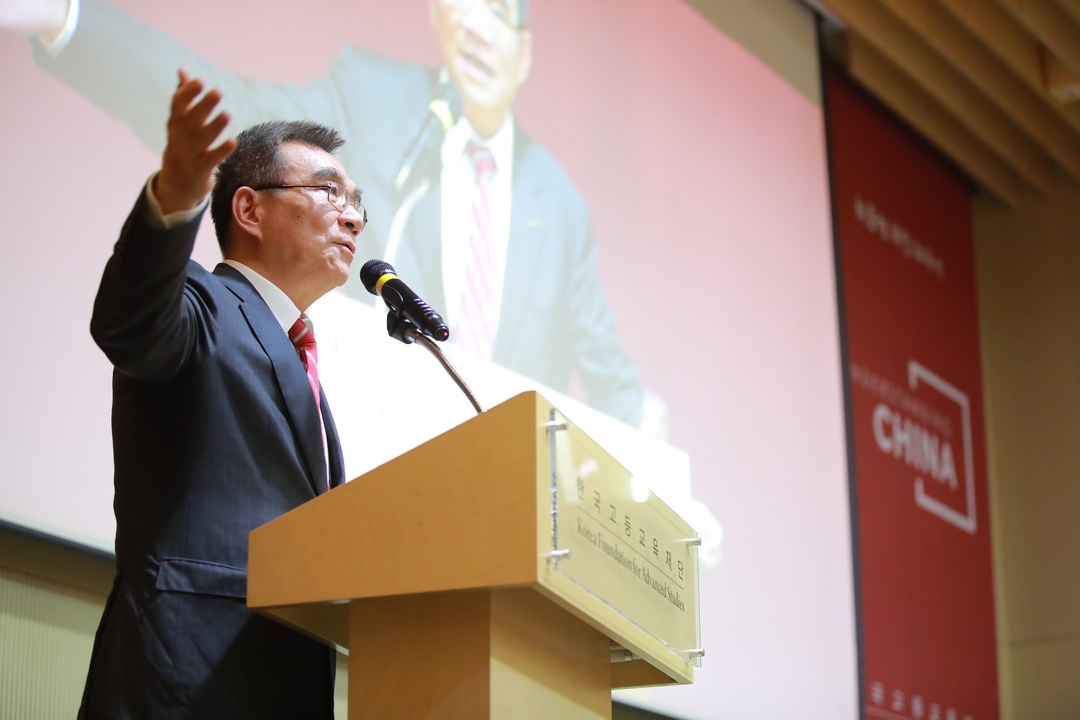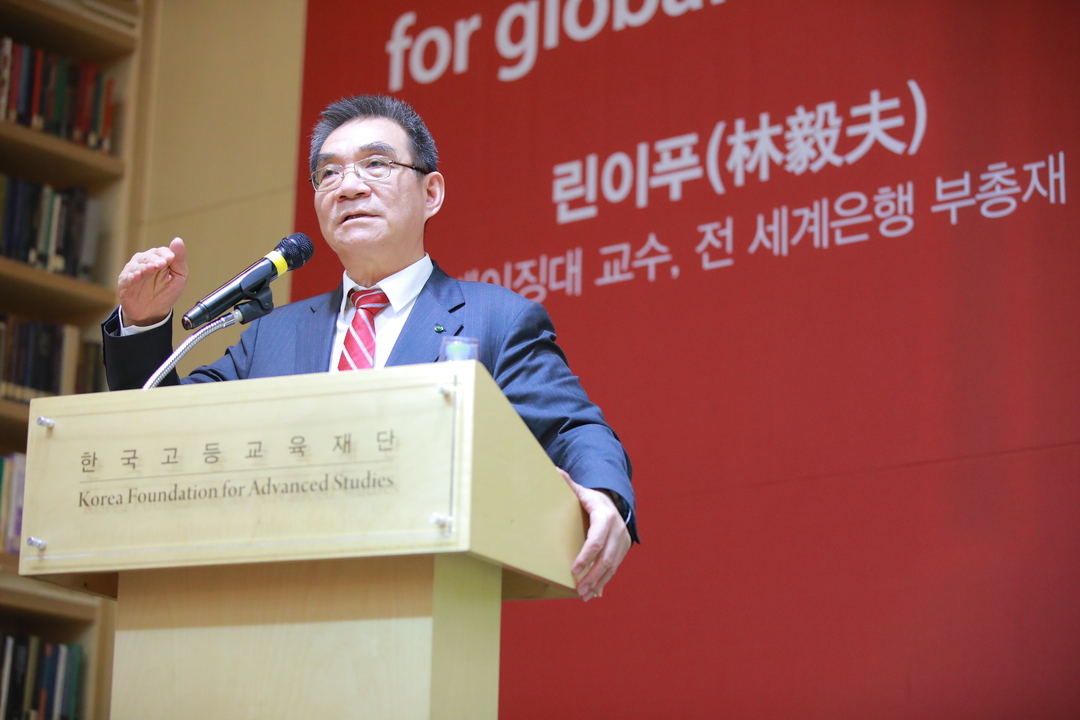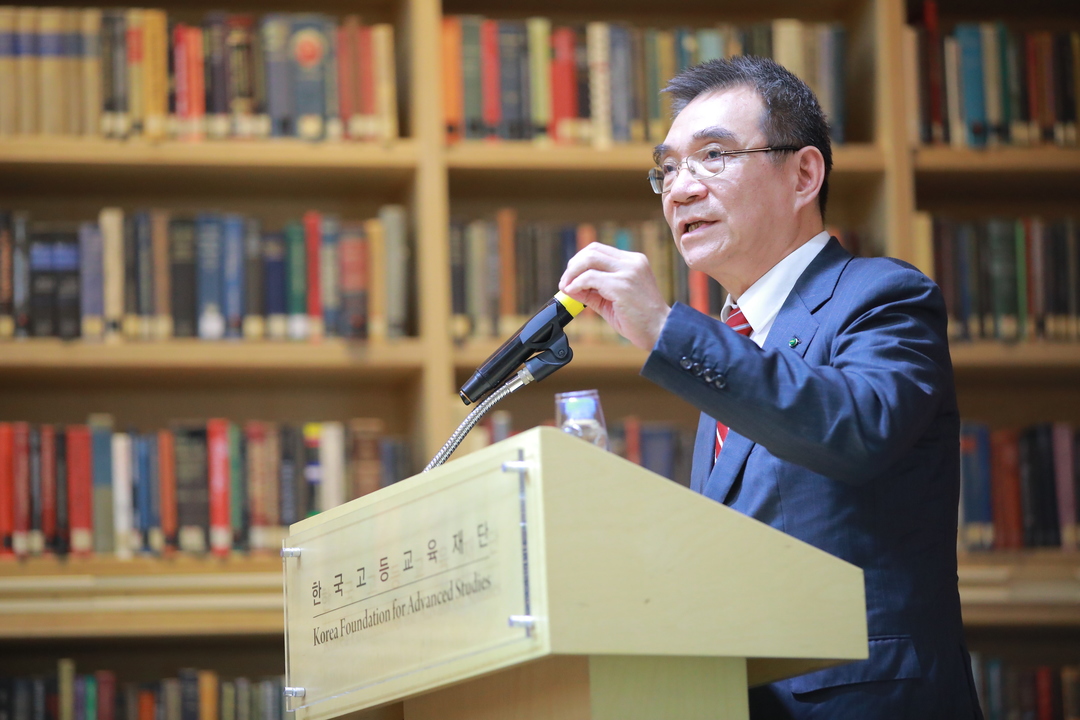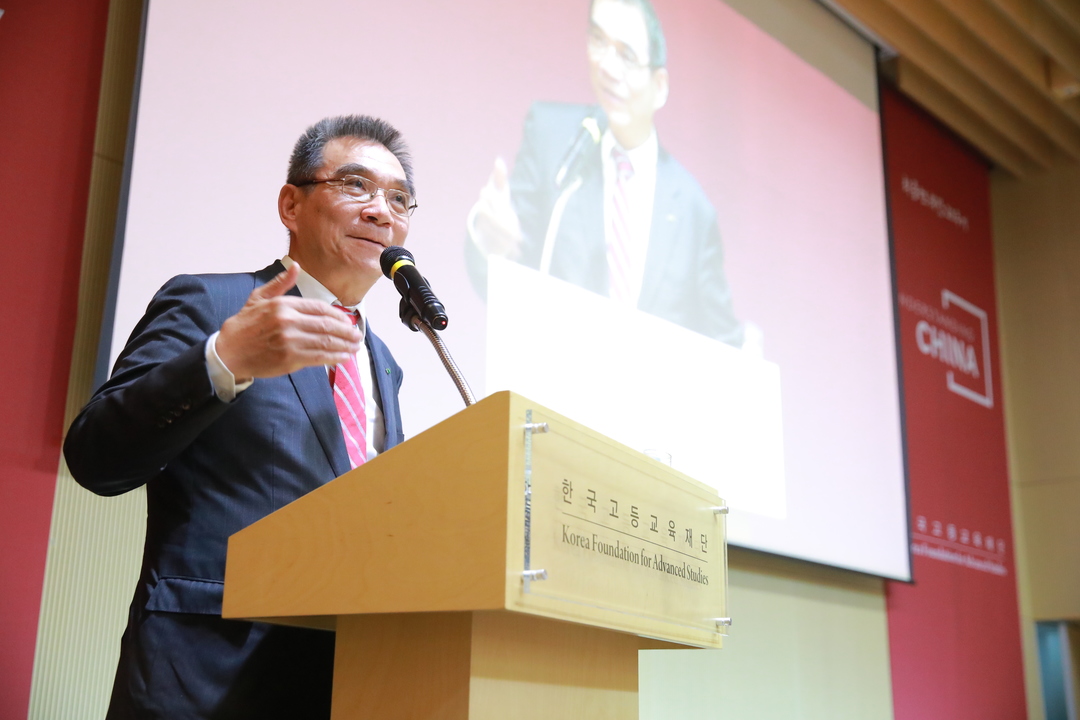2018.07.03 13:30 - 15:30
-
-
-

[CLS 35] Justin Yifu LIN
#China
#Rise of China
#Reform and Opening-up
-

[CLS 35] Justin Yifu LIN
#China
#Rise of China
#Reform and Opening-up
-

[CLS 35] Justin Yifu LIN
#China
#Rise of China
#Reform and Opening-up
-

[CLS 35] Justin Yifu LIN
#China
#Rise of China
#Reform and Opening-up
On July 3rd, Korea Foundation for Advanced Studies invited Prof. Lin Yifu of Peking University to give a lecture on “China’s Rejuvenation and Its Implication for Global Economy” as the 35th lecture of the KFAS China Lecture Series. Attended by more than two hundred people, the event included Prof. Lin Yifu’s analysis on sources of Chinese economic development and the implications for developing economies.
Prof. Lin Yifu began his lecture by introducing Chinese economic history and the concept of latecomer advantage. According to his explanation, China voluntarily gave up its latecomer advantage during the period before 1978 by building up military and national defense industries, which brought about misallocation of resources and impeded China’s economic growth. He argued that it was only after 1978 that China started to develop industries which were consistent with China’s comparative advantage, such as light industries and labor-intensive industries.
While many countries were going through a similar transition period, Prof. Lin Yifu pointed out that the main reason why China could maintain both economic stability and growth was due to its pragmatic approach. Prof. Lin reinforced how China liberalized the entry of new sectors by setting up special economic zones (SEZs) or export processing zones while keeping its governmental intervention. However, he also noted that China needed to pay the cost to achieve dynamic economic growth, that is to say corruption and income disparity. He commented that Chinese government now seems ready to remove those distortions as reflected by the government pledge during the 18th Party Congress to deepen market-oriented reform.
In regards to the implications of Chinese economic growth, he stated that developing countries should keep their pace and take a pragmatic approach, understanding that a country’s comparative advantage is determined by its development level based on its factor endowments. Also, he warned that countries should understand that distortions are endogenous to the market. Prof. Lin finished his lecture by emphasizing the need to create a new theory based on developing countries’ experiences.
The lecture was followed by a discussion session with Prof. Lee Keun of Seoul National University, leading to an intense examination of various issues like Chinese startups, trade war with the United States, one-child policy, other developing economies, and so on.
Justin Yifu LIN, LEE Keun